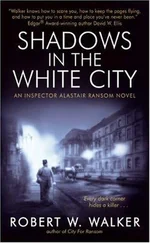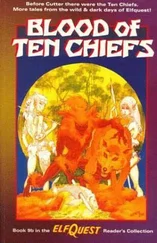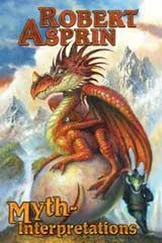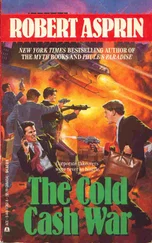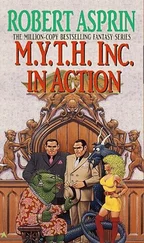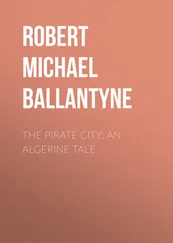Robert Asprin - Soul of the City
Здесь есть возможность читать онлайн «Robert Asprin - Soul of the City» весь текст электронной книги совершенно бесплатно (целиком полную версию без сокращений). В некоторых случаях можно слушать аудио, скачать через торрент в формате fb2 и присутствует краткое содержание. Жанр: Фэнтези, на английском языке. Описание произведения, (предисловие) а так же отзывы посетителей доступны на портале библиотеки ЛибКат.
- Название:Soul of the City
- Автор:
- Жанр:
- Год:неизвестен
- ISBN:нет данных
- Рейтинг книги:5 / 5. Голосов: 1
-
Избранное:Добавить в избранное
- Отзывы:
-
Ваша оценка:
- 100
- 1
- 2
- 3
- 4
- 5
Soul of the City: краткое содержание, описание и аннотация
Предлагаем к чтению аннотацию, описание, краткое содержание или предисловие (зависит от того, что написал сам автор книги «Soul of the City»). Если вы не нашли необходимую информацию о книге — напишите в комментариях, мы постараемся отыскать её.
Soul of the City — читать онлайн бесплатно полную книгу (весь текст) целиком
Ниже представлен текст книги, разбитый по страницам. Система сохранения места последней прочитанной страницы, позволяет с удобством читать онлайн бесплатно книгу «Soul of the City», без необходимости каждый раз заново искать на чём Вы остановились. Поставьте закладку, и сможете в любой момент перейти на страницу, на которой закончили чтение.
Интервал:
Закладка:
For that was what he feared the most: that the necromant wouldn't be content to let Ace stay dead, that she'd pine for her lover and eventually call him up from ashes, make him an undead like poor Janni, who was somewhere in the cone of the fire-Crit couldn't imagine how or why, but he could see, if he squinted, the dead Stepson, fully formed and unconsumed, doing something that looked like bathing under a waterfall, but doing it in a heat that would melt bone in seconds.
Crit had learned, fighting magic and sometimes fighting it with magic, not to ask questions if he didn't want to hear the answers. So he left the matter of Janni to those who ought to tend it: to Ischade, who'd raised his shade after a proper Sacred Band funeral; to Abarsis, who'd come down from heaven and escorted Janni's spirit on high, and done it where the whole Band could see it. If there was an argument about propriety here, it was between the necromant and the ghost of the Slaughter Priest: it wasn't a matter for a decidedly unmagical fighter like himself. If Janni hadn't once been Niko's partner and a Sacred Bander, it wouldn't have been the business of any Stepson what Ischade had done. As things stood, all you could do, if you were so inclined, was pray for Janni's soul.
But "it bothered Crit intensely because the same thing could happen to Strat Ischade could make it happen.
He wondered idly, trailing the ghost-horse on its rounds about the Peres estate, how you went about killing a necromant. If Strat didn't come through this intact, he was going to find out. Maybe Randal would know-if Randal ever again was capable of doing more than swallowing when you put a spoon of gruel in his mouth.
There had been a few minutes, he'd been told, when it \ seemed that Randal and Niko had come through their battle with Roxane and the demon in good shape.
But physical flesh-even mageflesh and Bandaran adept's flesh-could take only so much. The two were alive; they'd live; whether they'd ever be as hale or as smart as they once were, only time would tell.
Rounding a burned-out wall, the heat lessened perceptibly and Crit could stop squinting and raise his head.
The ghost-horse was still right in front of him. In fact, when Crit stopped, it stopped.
When he took a linen rag and wetted it from the waterskin dangling from his belt, the specter craned its neck to look back at him, ears pricked, as if to ask what he was doing.
What he was doing was anybody's guess, but he didn't try to tell the ghost-horse that. The bay was still bay: it had a black mane and tail (although when the hot wind ruffled them they streamed out like charred cinders, not horsehair); it had a red-gold haircoat (now flame red and flickery as the patterns from the fire chased each other along its flanks); it had black stockings (which resembled burnt timbers). But it was more substantial than it had been around front, where the fire was brighter.
Then it pawed the ground and whickered, still fixing him with a fire-light centered gaze from liquid horse eyes.
The come-hither look and the forefoot pawing the ground were unmistakable to any horseman: the bay wanted Crit to hurry up, climb aboard: it wanted to go for a ride.
"Oh no, horse," he said out loud to it. "I came by myself- no reinforcements, no backup. I did that because nobody else ought to risk his life-or sacrifice it, if that's what's going to happen here... because this is a matter between pairbonded partners."
The horse snorted disapprovingly, as if to remind Crit that it knew he was trying to cover his own fear. Then it slowly turned around, so that its rump was no longer facing him, and ambled toward him.
The big, liquid, obling-centered eyes said: Strut is mine, too; horses and men are partners; mount up and let's stop playing games. He's waiting.
"Strat, damn you to hell," Crit whispered, shaking his head to clear it of horse-thoughts and horse-needs and horse-loyalties. This wasn't even a living horse, just a ghost, something Ischade had conjured from a dead animal.
But the thing kept coming, head high, feet carefully placed to avoid stepping on its dangling bridle reins.
Bridle reins? Had they been there before? He didn't think so.
The horse, now an arm's-length away, stopped still. It whickered softly and the whicker said, / love him too. The forefoot, pawing the ground impatiently, added. We don't have much time. And then the horse, in the manner of high-school horses like Tempus's Tros, bent one foreleg at the knee, curling it and lowering his forequarters, the other front leg outstretched, while it arched its neck in a bow meant to enable a wounded man or a high-bom lady to mount up without difficulty.
"Crap, all right," Crit said through clenched teeth and strode resolutely toward the bowing ghost-horse, trying hard not to think too much about what he was doing, or whether he might be imagining the whole thing-maybe a piece of timber had fallen on him, a piece of masonry collapsed so fast he hadn't had time to realize it, and he was dead too, dead but denied a peaceful rest, trapped in some netherworld with the ghost-horse, on which he'd wander forever, seeking his lost rightside partner.
But no: The sky was full of lightning, there were shouts and mutters on the breeze from somewhere near by where factions fought. There was a plague in Sanctuary, all right, but not some spurious one that turned your lips blue and made your armpits sore: it was a plague of human failing, of confusion, of greed and desire and endless power plays.
It wasn't, he admitted as he mounted the bay (which felt surprisingly substantial, for a ghost-horse), the magic or the gods which made Sanctuary such a foul pit, but human excess; magic was no more to blame than sword or spear or rock. There were enough rocks on the earth to eradicate the race; magic couldn't do a better job, only a more colorful one. But rock or spear or wand or Nisi globe didn't murder on their own, nor enslave-the weapon must be wielded; the true culprit was human greed and human will. And the killing never stopped- in the name of magic or the name of god or the name of honor or nationalism or progress or liberation, it was just killing.
And because it had always been so, and would always be so, Critias had come to the profession of arms himself: the only protection he could see was to be a perpetrator, not a victim.
That was why Strat had made him so angry when he'd become entangled with Ischade: Strat had become a victim, and Crit had a horror of helplessness. Even if Strat were just a lovesick fool, Crit still thought he'd been right when he had shot past his friend that night on the balcony-if it had served to bring Straton to his senses, then Crit wouldn't be here, pulling himself up into the sometimes-saddle of Strat's sort-of-corporeal bay, riding into he-didn't-know what for abstracts of honor and duty that weren't going to keep him alive if the steaming stable toward which the bay was ineluctably heading crashed down upon his head.
The stables weren't exactly ablaze, but they had corn magazines and straw and hay in them and sparks smoldered on the roof.
Crit reached forward to catch up the bay's reins, but the beast had had a mouth like iron in life and it was no better in afterlife.
He sawed on the reins to no avail, then quit trying in time to duck as the horse trotted determinedly through the open stable doors and headed for wide stairs which must lead to the stable's loft.
Crit shifted his weight, thinking to throw one leg over the saddle and check out the stable loft on foot, when the horse started climbing.
"Vashanka's balls," the task force leader swore, flattening himself to the horse's neck as it climbed a flight never meant for anything of its size and boards creaked and groaned. "Horse, you'd better be right."
It was: at the stair's head was a landing, and as the bay's bulk appeared there, a woman stifled a scream.
Читать дальшеИнтервал:
Закладка:
Похожие книги на «Soul of the City»
Представляем Вашему вниманию похожие книги на «Soul of the City» списком для выбора. Мы отобрали схожую по названию и смыслу литературу в надежде предоставить читателям больше вариантов отыскать новые, интересные, ещё непрочитанные произведения.
Обсуждение, отзывы о книге «Soul of the City» и просто собственные мнения читателей. Оставьте ваши комментарии, напишите, что Вы думаете о произведении, его смысле или главных героях. Укажите что конкретно понравилось, а что нет, и почему Вы так считаете.

